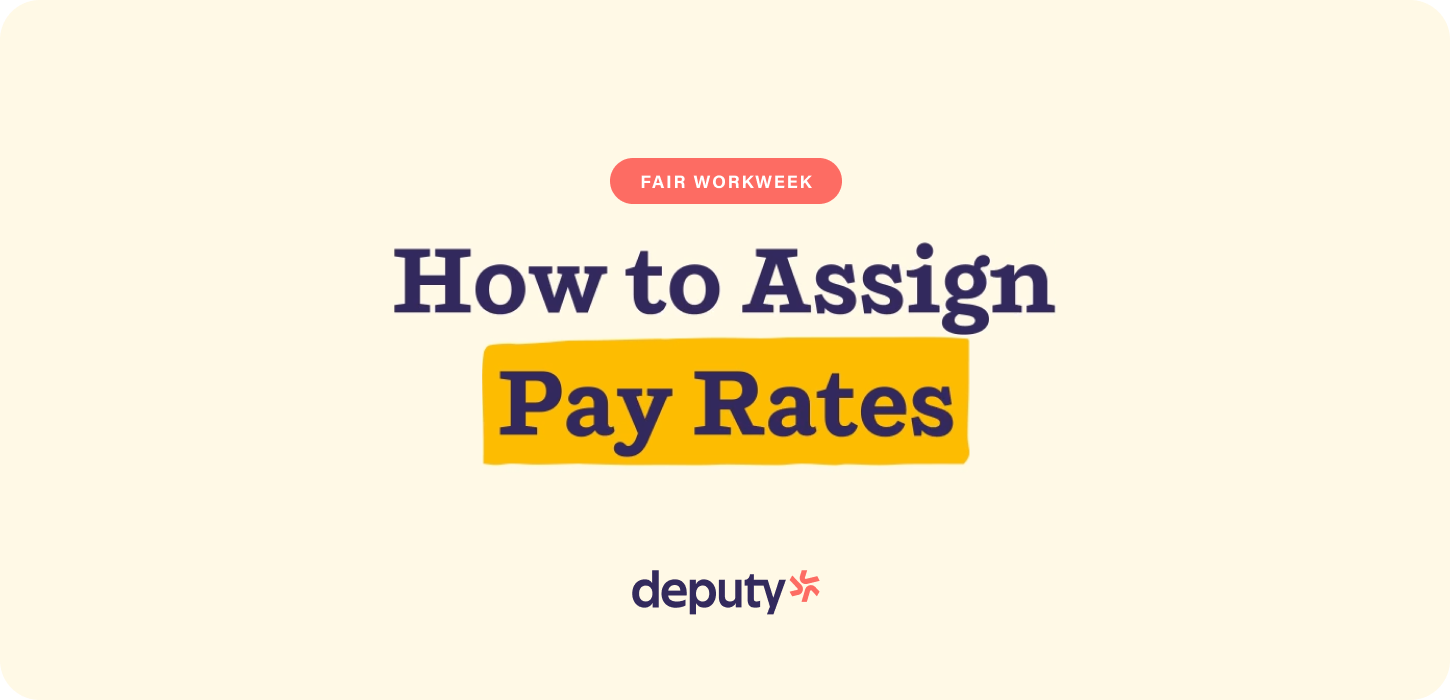Fair Workweek made simple with Deputy

What is Fair Workweek?
Fair Workweek regulations, also known as Predictable Scheduling or Secure Scheduling, aim to ensure workers have more stable and predictable work schedules. These laws address issues such as unpredictable hours, last-minute schedule changes, and insufficient notice of shifts, aiming to improve the well-being and work-life balance of employees, especially those in hourly or shift-based roles.
It's important to note that the specific details of Fair Workweek regulations can vary significantly by location, and employers should be aware of the specific rules and requirements applicable in their jurisdiction.
Key features of Fair Workweek regulations often include:
Good Faith Estimates: Employers are required to provide an estimate of where, when and how often employees can expect work.
Advanced Notice of Schedules: Employers are required to provide employees with a specified amount of advance notice regarding their work schedules.
Consent for Work Schedule Changes: Employees have the right to decline shift changes if their schedule is altered without proper advanced notice.
Predictability Pay: If employers make last-minute changes to an employee's schedule, employers may be required to provide additional compensation to affected employees.
Rest Between Shifts: Minimum rest periods are required between shifts to ensure that employees have adequate time for rest and recovery between work periods.
Offer of Work to Existing Employees: Employers are required to provide existing employees the opportunity to pick up new shifts before hiring additional staff.
Record of Compliance: Employers must maintain records documenting compliance with Fair Workweek laws.

How Does Deputy Solve for Fair Workweek?
To simplify the process of building fair and profitable schedules, Deputy has built a complimentary extension into our core workforce management product, designed specifically to assist our customers in adhering to Fair Workweek regulations.
Deputy’s Fair Workweek solution guides managers through scheduling and sends alerts when compliance risks arise. In compliance with Fair Workweek laws, Deputy records employee consent for last-minute schedule changes, suggests predictability pay, and maintains compliance records for peace of mind.

Does Fair Workweek apply to me?
Fair Workweek regulations are typically applicable to industries with high rates of hourly or shift-based workers, such as retail, hospitality, and food service. If your business is in an industry with a large number of shift workers and operates in any of the shown locations on the map, there is a good chance that Fair Workweek regulations may apply to your business. Make sure to check with your legal team to see if Fair Workweek applies to you!
Learn more about who may be covered by Fair Workweek.
*Note: Fair Workweek is expanding quickly through the US and these locations may change over time.
How Do I Set Up Deputy’s Fair Workweek Software?
Before setting up Fair Workweek, its important to understand which laws may affect your business. Make sure to read through Deputy's region specific set up guides and speak to your legal team to understand how your business may be impacted by Fair Workweek.
Deputy’s Fair Workweek solution is available for Premium and Enterprise customers. Premium customers can activate Fair Workweek in just three easy steps. Watch the videos below to set up Fair Workweek for your business.
Enterprise customers - please reach out to your Deputy Customer Success Manager
(or csm@deputy.com) to activate your Fair Workweek solution.


